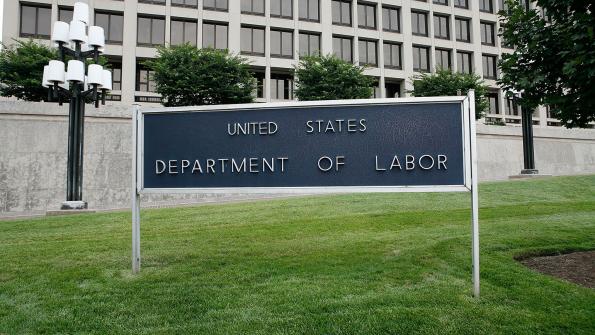The Biden administration found out final version of its fiduciary rule Tuesday, effective September 23.
Like previous efforts, the rule will redefine the definition of fiduciary under ERISA. The disclosure follows a Labor Department proposal released last fall and a 60-day comment period.
“This rule protects retirement investors from inappropriate investment recommendations and harmful conflicts of interest,” said Acting Secretary of Labor Julie Su. “Retirement investors can now trust that their investment advice provider is working in their best interests and helping to make unbiased decisions.”
Under the final rule, financial institutions that “supervise providers of investment advice” must have policies and procedures to manage conflicts of interest and ensure that their providers follow the guidelines.
According to the DOL, the current fiduciary definition of retirement advice, enacted in 1975, has become woefully outdated with the shift away from traditional pensions and toward 401(k) plans, with plan participants and individuals more responsible than ever for their retirement security. retirement.
Lisa M. Gomez, DOL Assistant Secretary for Employee Benefits Security, said in a statement about the new rule that it updates standards “that simply aren't providing the protections America's workers need and deserve” in retirement.
“The investment landscape has changed, the retirement landscape has changed, and it's essential that our regulations respond to those changes so that workers can finally achieve the secure retirement they've been working for decades to achieve,” she said. .
Even before the rule was released, its opponents expressed caution, including the president of the Insured Retirement Institute (IRI), Wayne Chopus, who said early Tuesday that he was not “optimistic” about the rule and that it would “cause harm significant to consumers”. He predicted it would resemble an Obama-era rule struck down by the Fifth Circuit Court of Appeals in 2018.
“In the short time the 2016 rule was in effect, it caused millions of consumers to lose access to professional financial guidance of their choice and to products and strategies to help them achieve a financially secure retirement,” Chopus said. . “We anticipate that today's final rule will produce comparable or worse results.”
The DOL unveiled the proposed rule last October as part of President Joe Biden's effort to curb so-called “junk payments” in the form of high and potentially inappropriate commissions in the retirement advice space.
This rule follows previous administrations' attempts at their own fiduciary rules, including a Trump administration version that was dead on arrival in the Biden White House and the aforementioned Obama-era version.
The DOL followed the proposal with a 60-day comment period, including a two-day public hearing in December, before the final proposal landed in the White House Office of Management and Budget (OMB) for the final stage of the process. Throughout March and April, OMB met with industry stakeholdersincluding the CFP Board, AARP (which supported the rule), and the US Chamber of Commerce and Financial Services Institute (FSI) (which opposed it).
OMB completed its review earlier this month, prompting critics of the rule to write a letter to Su asking that the public comment process be reopened. The letter accuses the Labor Department and OMB of allowing “significant rulemaking flaws” in the process.
Specifically, those groups (including IRI, FSI, Fonseca and others) accused the DOL of fast-tracking the review process with an “unprecedented” public hearing in the middle of the 60-day comment period, which they called “historically short”. (although it's notable that Trump's version of the rule originally set a 30-day comment period).
FSI has already threatened to sue unless the DOL “retracts or substantially improves” the rule, according to President and CEO Dale Brown.
The rule is coming early enough in the year that there is a safeguard if Donald Trump wins the White House in 2024. The new rules typically take effect 60 days after publication in the Federal Register, so it will already be on the books by the time Biden lose a new administration.
However, a new Trump administration could direct the DOL to redo or withdraw the rule through the Administrative Procedures Act, although that administration would have to provide a reason for imposing a new rule in its place.
The Congressional Review Act also allows Congress to finalize a rule at least 60 legislative days before a new president is sworn into office (though Republicans would likely have to hold both houses of Congress as well as the White House for kill the rule through this approach).

